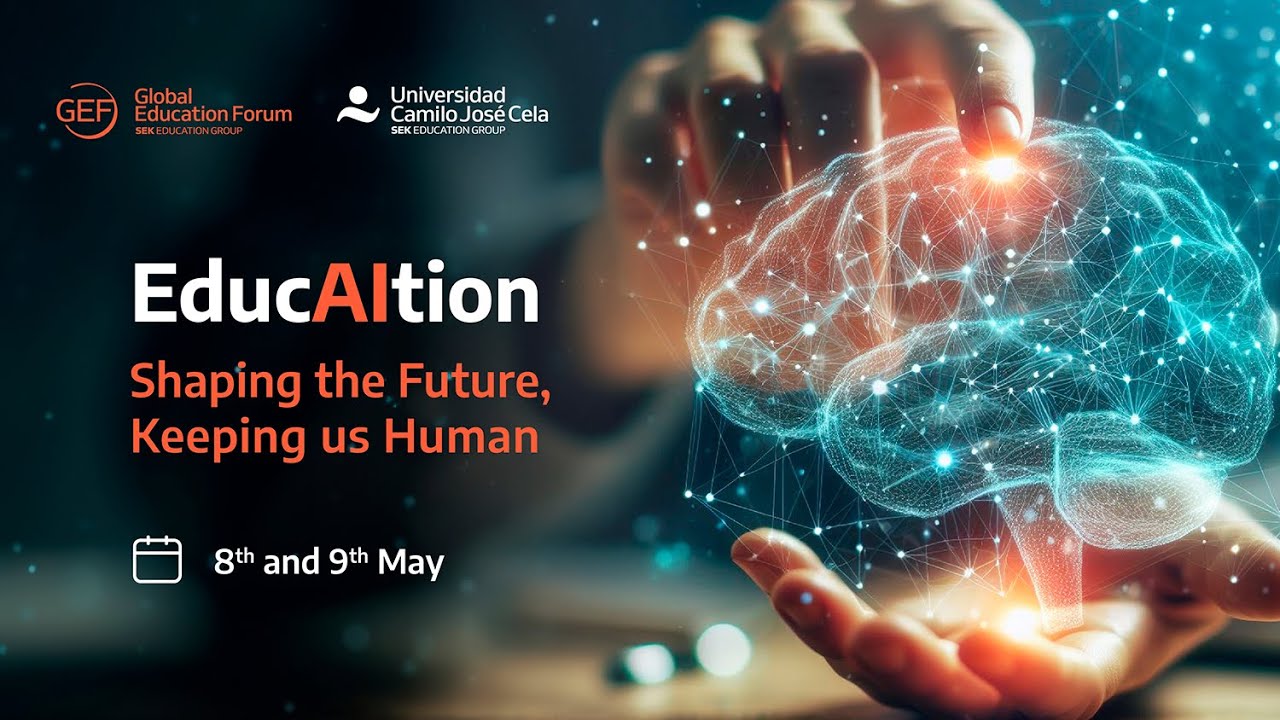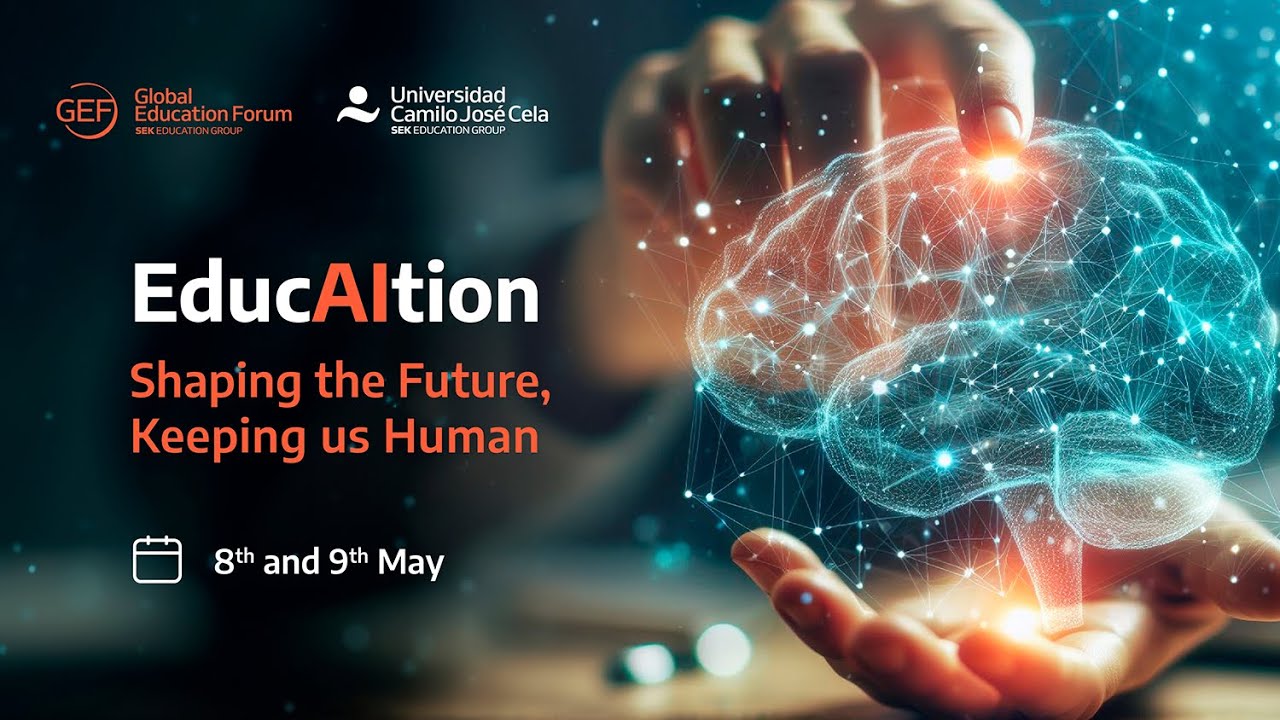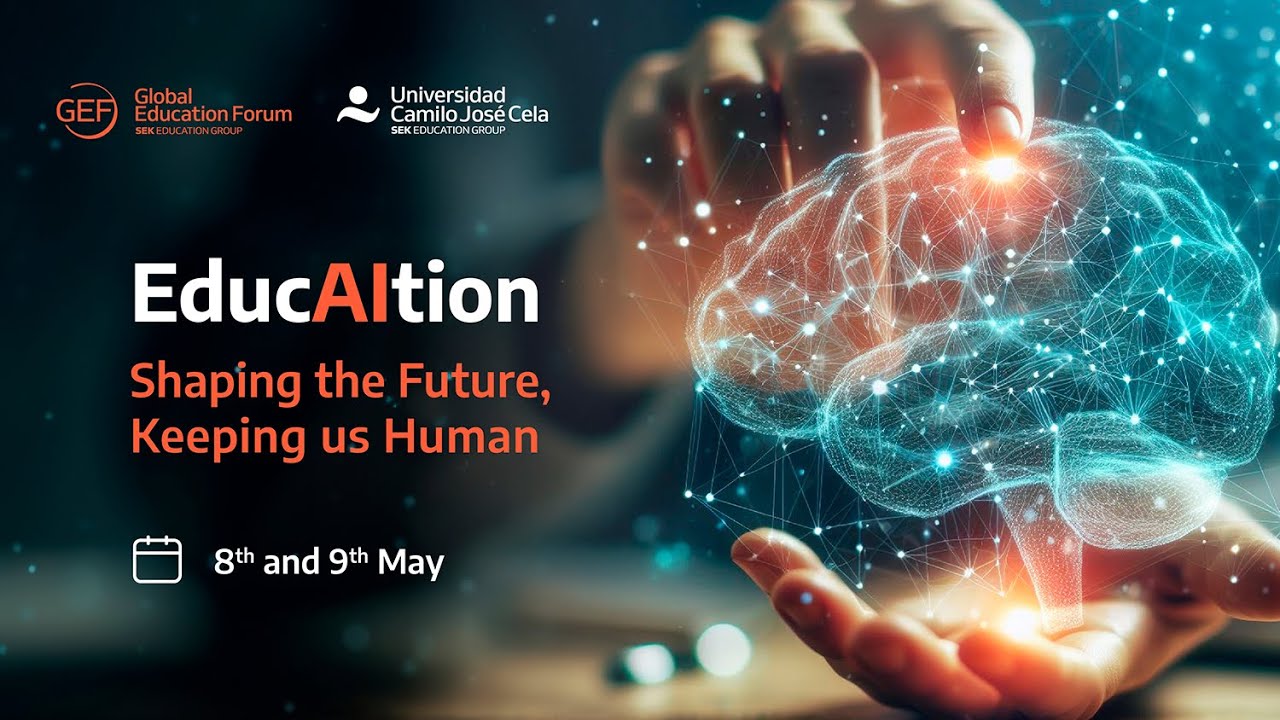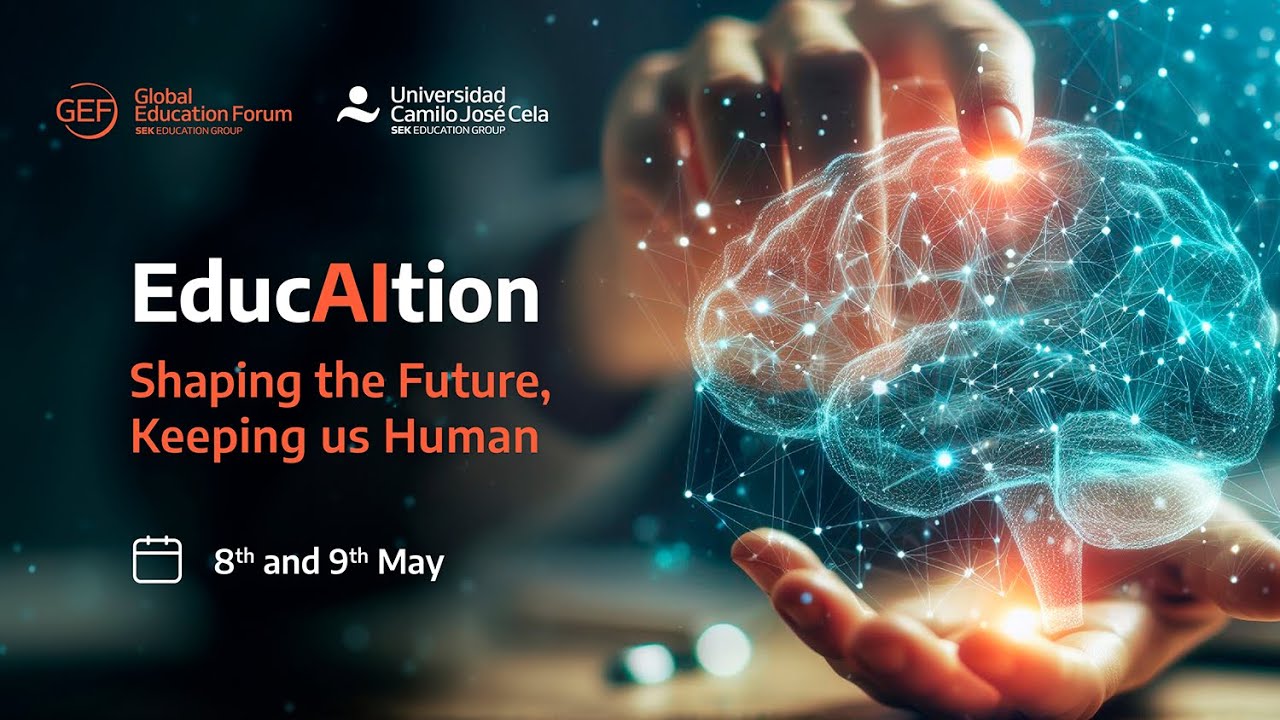GEF Madrid 2024: Ethical implications of AI
Summary
TLDRThe Global Educational Forum panel, moderated by Gregory Enu, delved into the ethical implications of AI in education. Panelists from diverse backgrounds, including academia and AI industry, discussed challenges such as transparency, explainability, and biases in AI systems. They explored AI's potential to democratize education through personalized learning while raising concerns about privacy, misinformation, and the digital divide. The conversation underscored the need for responsible AI development and the crucial role of educators in guiding ethical AI use.
Takeaways
- 🌐 The panel at the Global Educational Forum discussed the ethics and implications of AI in education, emphasizing the importance of considering moral questions of right and wrong in AI development.
- 👨🏫 Gregory Enu, the Arison professor at George Mason University, shared his experience with AI in education, highlighting the potential and challenges AI brings to the field, starting with his first interaction with a chatbot in 2002.
- 🔍 The panel acknowledged the lack of focus on the ethical implications of AI in academic research, pointing out that this is a significant gap that needs to be addressed.
- 📚 The role of AI in education is to teach students to use digital technologies effectively, ensuring they are not merely used by technology but can leverage it for personal and professional growth.
- 🤖 Hgo, the Chief AI Officer at Adal, discussed the importance of transparency and explainability in AI systems, noting that understanding these concepts is crucial for ethical AI development and compliance with regulations.
- 🏛️ Ahmed Gal from R University highlighted the issue of identity in AI, especially for creatives, where the use of AI in the creative process raises questions about authorship and originality.
- 📈 Mark Kaban raised concerns about the influence of arms manufacturers in STEM education, questioning the ethics of these corporations shaping educational missions and potentially grooming students for certain industries.
- 🌍 The panelists considered the role of AI in addressing global educational inequities, discussing the potential of AI to provide personalized learning experiences and democratize access to knowledge.
- 🏫 There was a debate on whether AI can replace the social aspect of learning and the motivation provided by human interaction, teachers, and peer groups.
- 🤖 The potential of AI to personalize education was discussed, along with the ethical considerations of data privacy and the development of relationships between students and virtual assistants.
- 🔮 The panel concluded that while AI offers opportunities for education, it cannot solve the fundamental issues of motivation and the need for human interaction in the learning process.
Q & A
What is the main topic of the panel discussion at the Global Educational Forum?
-The main topic of the panel discussion is 'Ethics and ethical implications in AI'.
What is Gregory Enu's professional background?
-Gregory Enu is the Arison Professor at George Mason University, a sustainability guest editor at the MIT Sloan Management Review, and has a background in AI technology and education.
Why did Gregory Enu initially engage with Chat GPT in 2002?
-Gregory Enu engaged with Chat GPT to seek a lesson plan on how to teach digital literacy to undergraduate students, recognizing the potential of AI in education.
What is the role of the chief AI officer at adal.adigital according to the panelist named Hgo?
-The role is to lead a team that works with member companies to understand the complexities of AI and to help them navigate the ethical and technical aspects of emerging technologies.
What ethical issue does Hgo believe the forum participants should consider?
-Hgo believes that transparency and explainability of AI systems are critical ethical issues that participants should consider.
What is the background of the panelist Ahmed Gal from R University?
-Ahmed Gal is an AI professional with 30 years of experience, focusing on the intersection of AI and art, and runs an Art and AI Lab at R University.
What is the ethical concern that Ahmed Gal raises regarding AI and creative identity?
-Ahmed Gal raises the concern of identity in creative works, where the use of AI complicates the issue of authorship and originality in art and music.
What is Mark Kaban's perspective on the involvement of arms manufacturers in STEM education?
-Mark Kaban expresses concern over the potential indoctrination and ethical implications of arms manufacturers funding and teaching STEM programs in K12 schools.
What is the issue of 'AI hallucination' mentioned by Mark Kaban?
-AI hallucination refers to instances where AI systems provide false or made-up information in their responses, which can be problematic for learners who may not discern the inaccuracies.
What is the potential ethical issue with virtual assistants in education raised in the discussion?
-The potential ethical issue is the personalization of education through virtual assistants, which raises questions about privacy, the nature of relationships students form with these assistants, and the implications of those relationships.
What is the fundamental question about education that the panelists believe AI might help re-evaluate?
-The fundamental question is the purpose and role of education when global access to knowledge is available through AI, and how to motivate students in an era where knowledge acquisition is not the sole reason for attending school.
Outlines

هذا القسم متوفر فقط للمشتركين. يرجى الترقية للوصول إلى هذه الميزة.
قم بالترقية الآنMindmap

هذا القسم متوفر فقط للمشتركين. يرجى الترقية للوصول إلى هذه الميزة.
قم بالترقية الآنKeywords

هذا القسم متوفر فقط للمشتركين. يرجى الترقية للوصول إلى هذه الميزة.
قم بالترقية الآنHighlights

هذا القسم متوفر فقط للمشتركين. يرجى الترقية للوصول إلى هذه الميزة.
قم بالترقية الآنTranscripts

هذا القسم متوفر فقط للمشتركين. يرجى الترقية للوصول إلى هذه الميزة.
قم بالترقية الآنتصفح المزيد من مقاطع الفيديو ذات الصلة

GEF Madrid 2024: Panel: Students's view of the Future on Education

GEF Madrid 2024: Creating a New Education System

Navigating the Future: BGI's Role in Shaping Education, Medicine, and Science

GEF Madrid 2024: AI's role in Student Wellbeing

GEF Madrid 2024: Reporting the Future: The Impact of AI on Education Journalism

GEF Madrid 2024: Panel: AI and the Global Scale
5.0 / 5 (0 votes)
